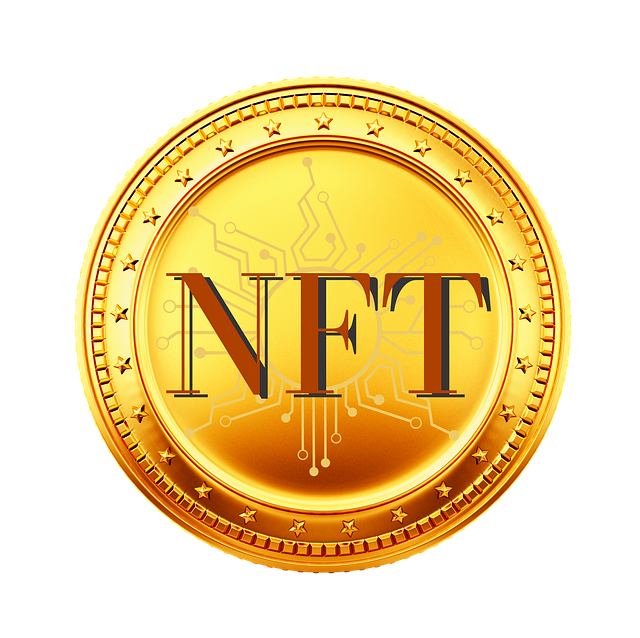Should I Trade Crypto on Robinhood? An In-Depth Analysis
Author: Jameson Richman Expert
Published On: 2025-08-05
Prepared by Jameson Richman and our team of experts with over a decade of experience in cryptocurrency and digital asset analysis. Learn more about us.
Trading cryptocurrencies on Robinhood has gained considerable popularity among retail investors seeking an accessible, low-cost platform for entering the digital asset space. Its sleek, user-friendly interface, zero-commission trading, and seamless integration with traditional stock and ETF trading make it particularly attractive for beginners and casual traders. As Robinhood expands its crypto services, it is critical to evaluate its core features, security protocols, regulatory standing, asset offerings, and limitations to determine whether it aligns with your trading objectives, security preferences, and long-term investment strategies.

Core Features and Trading Mechanics
Robinhood’s core appeal lies in its minimalist design that simplifies crypto trading. Users benefit from real-time market data, straightforward order execution, and instant trade confirmations, all within a unified app interface. The platform supports spot trading, allowing users to buy and sell cryptocurrencies at current market prices without leverage, futures, or options on crypto assets. This approach reduces complexity and risk for newcomers but also limits access to advanced trading strategies such as margin trading, derivatives, or complex order types like stop-loss or take-profit orders.
Unlike dedicated crypto exchanges, Robinhood does not support crypto withdrawals or transfers to external wallets. All cryptocurrencies are stored in Robinhood’s custodial wallets, managed centrally by the platform. This custodial model offers simplified security but compromises user control, as private keys are not accessible to the user. Long-term investors, DeFi enthusiasts, or those seeking full custody typically prefer platforms that support private key management, hardware wallets, and direct transfers to external services.
Furthermore, Robinhood’s infrastructure emphasizes ease of use over advanced analysis tools. Traders interested in detailed charting, technical indicators, or custom alerts may find Robinhood insufficient. Dedicated platforms such as TradingView, Coinigy, or Binance provide comprehensive analytical tools, algorithmic trading APIs, and community insights. This makes Robinhood more suitable for passive investors or those just starting to explore crypto trading.
Regulatory Environment and Security Considerations
Robinhood operates under the oversight of U.S. regulators including the Securities and Exchange Commission (SEC), Financial Industry Regulatory Authority (FINRA), and various state securities authorities. While these bodies enforce compliance for securities trading, their oversight of Robinhood’s crypto activities is less mature. Unlike specialized crypto exchanges such as Coinbase or Kraken, Robinhood does not provide insurance coverage for cryptocurrencies held in custodial wallets, nor does it employ cold storage or private key access for user holdings. This custodial approach simplifies platform operations but introduces vulnerabilities to hacking, regulatory crackdowns, or insolvency.
In terms of security measures, Robinhood employs encryption, two-factor authentication (2FA), and cold storage for a portion of assets. Despite these protections, the centralization of custody means that user funds are more susceptible to cyberattacks than decentralized holdings stored in private wallets. High-net-worth individuals or long-term holders may prefer hardware wallets (e.g., Ledger Nano X, Trezor T) and multisignature solutions, which provide offline security and private key control. When considering custodial risks, it is essential to understand that insurance coverage—if any—is typically limited to specific custodial services like Coinbase Custody or Fidelity Digital Assets, which utilize cold storage and multi-layer security protocols.
Given the evolving regulatory landscape, policymakers are increasingly scrutinizing token classifications, AML/KYC compliance, and platform registration requirements. Future regulatory shifts could impact Robinhood’s crypto offerings, including potential delistings or restrictions. Staying informed through trusted industry sources such as CoinDesk, The Block, or official Robinhood communications is advisable. Diversification across multiple platforms and jurisdictions can also mitigate platform-specific and regulatory risks.
Available Cryptocurrencies and Asset Selection
Robinhood offers a curated selection of high-liquidity, large-cap cryptocurrencies including Bitcoin (BTC), Ethereum (ETH), Dogecoin (DOGE), Litecoin (LTC), and Bitcoin Cash (BCH). This selection caters well to traders seeking exposure to established assets with substantial market depth and liquidity. However, compared to dedicated crypto exchanges, Robinhood’s asset universe remains limited—excluding numerous altcoins, DeFi tokens, and emerging projects.
Investors interested in staking, yield farming, liquidity pools, or participating in token launches will find Robinhood’s offerings restrictive. Platforms like Binance, KuCoin, or MEXC list hundreds to thousands of tokens, including many DeFi and innovative projects. For diversified exposure or active participation in DeFi ecosystems, these exchanges provide the necessary infrastructure and token variety.

Trading Tools, Analytical Capabilities, and User Experience
Robinhood emphasizes simplicity, offering basic price charts, simplified order types, and instant execution. It lacks advanced analytical tools such as detailed candlestick charts, a broad suite of technical indicators (RSI, MACD, Bollinger Bands), or customizable alerts, which are crucial for active traders and technical analysts. The platform’s design favors ease of use over depth, aligning with Robinhood’s mission to democratize investing but limiting its appeal for sophisticated trading strategies.
Dedicated platforms like TradingView, Binance, or CryptoCompare deliver comprehensive charting, real-time news, API integrations, and community insights. These tools enable traders to develop complex strategies, automate trades, and monitor market sentiment effectively. For traders relying on technical analysis, third-party tools are often indispensable, making Robinhood less suitable for high-frequency or algorithmic trading.
Risk Management and Leverage
Robinhood’s focus on spot trading means no margin or leverage options are available, emphasizing conservative trading. This design minimizes leverage-induced losses but limits traders seeking higher risk/reward strategies through derivatives or margin trading. For those interested in futures, options, or leverage, platforms such as Binance Futures, Bybit, or Bitget offer extensive risk management tools, including stop-loss, take-profit, and hedging options.
Engaging in leveraged trading requires a deep understanding of market volatility, margin calls, and liquidation risks. Such strategies are generally suitable for experienced traders with comprehensive risk management practices.
Security and Custodial Risks
While Robinhood employs industry-standard encryption, 2FA, and partial cold storage, the custodial model inherently involves risks. The inability to control private keys means assets are vulnerable to platform breaches, regulatory actions, or insolvency. Large balances stored in Robinhood’s custodial wallets lack the security guarantees that private key control provides.
To enhance security, investors can utilize hardware wallets like Ledger Nano X or Trezor T, storing private keys offline. Additionally, insured custodial solutions such as Coinbase Custody or Fidelity Digital Assets add layers of legal recourse and security through multi-signature and cold storage practices. Diversifying holdings across multiple secure wallets and platforms is prudent to mitigate custodial and counterparty risks.

Limitations and Long-Term Holding Considerations
One of Robinhood’s notable limitations is the inability to transfer cryptocurrencies to external wallets or other exchanges. This restriction makes Robinhood more suitable for short-term trading or speculation rather than long-term HODLing. For maximum asset control and security, investors should consider platforms that facilitate direct transfers, such as Coinbase Wallet, MetaMask, or hardware wallets.
Long-term investors must prioritize safeguarding assets with private keys and offline storage, especially amid regulatory uncertainties and hacking threats. Employing multi-signature wallets and insured custodial services can further bolster security and peace of mind.
Market Data, Signals, and Market Analysis
Robinhood provides basic market data—current prices, 24-hour volume, and simple alerts—but lacks detailed technical analysis tools, real-time news feeds, or trading signals. These features are vital for timing trades, managing risks, and developing robust trading strategies. Traders seeking advanced insights often turn to third-party platforms like TradingView, Coinigy, or CryptoCompare, which offer sophisticated charting, real-time alerts, sentiment analysis, and exchange integrations.
Using these tools alongside Robinhood can significantly improve decision-making, especially in volatile markets where timely information is critical.
Regulatory Outlook and Future Risks
The regulatory environment for cryptocurrencies remains highly dynamic, with agencies such as the SEC, CFTC, FinCEN, and state regulators actively shaping policies. Potential regulatory changes—such as the classification of certain tokens as securities, stricter AML/KYC requirements, or outright bans—could lead to delistings or restrictions on Robinhood’s crypto offerings. Recent discussions around token classification and compliance obligations highlight the importance of staying informed and adaptable.
Investors should monitor official announcements, industry news, and platform policies. Diversification across multiple platforms and jurisdictions can provide operational flexibility and mitigate platform-specific or regulatory risks.

Conclusion: Is Robinhood Suitable for Crypto Trading?
Robinhood offers an accessible, cost-efficient gateway into cryptocurrency trading, particularly suited for beginners and casual traders who prioritize simplicity and low costs. Its integrated platform for stocks, ETFs, and crypto provides a seamless user experience for diversified portfolios. However, its limitations—such as the absence of withdrawals, limited asset selection, lack of advanced trading tools, and custodial control—may restrict more active traders, long-term hodlers, or security-conscious investors.
For sophisticated trading, DeFi participation, or full custody over assets, dedicated exchanges like Coinbase, Binance, or Kraken are more appropriate. Robinhood remains a compelling entry point but should be complemented with other platforms tailored to advanced needs, security, and flexibility.
Additional Resources
- Learn about crypto security: Is Binance safe to keep crypto?
- Understanding derivatives and options trading: Understanding option lot size and its impact
- Market signals and alerts: Crypto Signals Price Alerts